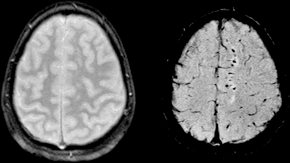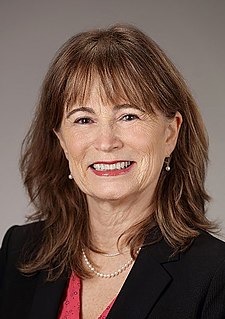
The National Institute of Neurological Disorders and Stroke (NINDS) is a part of the U.S. National Institutes of Health (NIH). It conducts and funds research on brain and nervous system disorders and has a budget of just over US$2.03 billion. The mission of NINDS is "to reduce the burden of neurological disease—a burden borne by every age group, every segment of society, and people all over the world". NINDS has established two major branches for research: an extramural branch that funds studies outside the NIH, and an intramural branch that funds research inside the NIH. Most of NINDS' budget goes to fund extramural research. NINDS' basic science research focuses on studies of the fundamental biology of the brain and nervous system, genetics, neurodegeneration, learning and memory, motor control, brain repair, and synapses. NINDS also funds clinical research related to diseases and disorders of the brain and nervous system, e.g. AIDS, Alzheimer's disease, epilepsy, muscular dystrophy, multiple sclerosis, Parkinson's disease, spinal cord injury, stroke, and traumatic brain injury.

A blast injury is a complex type of physical trauma resulting from direct or indirect exposure to an explosion. Blast injuries occur with the detonation of high-order explosives as well as the deflagration of low order explosives. These injuries are compounded when the explosion occurs in a confined space.

Diffuse axonal injury (DAI) is a brain injury in which scattered lesions occur over a widespread area in white matter tracts as well as grey matter. DAI is one of the most common and devastating types of traumatic brain injury and is a major cause of unconsciousness and persistent vegetative state after severe head trauma. It occurs in about half of all cases of severe head trauma and may be the primary damage that occurs in concussion. The outcome is frequently coma, with over 90% of patients with severe DAI never regaining consciousness. Those who awaken from the coma often remain significantly impaired.

Chronic traumatic encephalopathy (CTE) is a neurodegenerative disease linked to repeated trauma to the head. The encephalopathy symptoms can include behavioral problems, mood problems, and problems with thinking. The disease often gets worse over time and can result in dementia. It is unclear if the risk of suicide is altered.
Albert Juan Aguayo is a Canadian neurologist at McGill University. Albert Juan Aguayo is a Canadian neurologist at McGill University. Hailing from the Bahia Blanca in Argentina, Dr. Aguayo graduated in medicine from the National University of Córdoba. After graduating from Argentina, Aguayo continued to train in neurology, working as an assistant physician in Neurology University of Toronto and McGill University. In the year 1967, McGill University appointed Aguayo as assistant professor in the department of Neurology and Neurosurgery. From the years 2000 to 2005, Aguayo served as the Secretary General for the International Brain Research Organization and then proceeded to become the President of the International Brain Research Organization from the years 2006 to 2008

The Evelyn F. and William L. McKnight Brain Institute (MBI) at the University of Florida (UF) is a comprehensive and diverse neuroscience research center that houses the UF College of Medicine’s four “neuro” departments: neuroscience, neurology, neurosurgery and psychiatry.
Steven T. DeKosky is the Aerts-Cosper Professor of Alzheimer's Research at the University of Florida (UF) College of Medicine, deputy director of UF’s Evelyn F. and William L. McKnight Brain Institute (MBI) and associate director of the 1Florida Alzheimer’s Disease Research Center.
Samuel E. Gandy, M.D., Ph.D. is a neurologist, cell biologist, Alzheimer's disease (AD) researcher and expert in the metabolism of the sticky substance called amyloid that clogs the brain in patients with Alzheimer's. His team discovered the first drugs that could lower the formation of amyloid.

The VA Palo Alto Health Care System (VAPAHCS) is a United States Department of Veterans Affairs healthcare group located in California which consists of three inpatient facilities, plus seven outpatient clinics in San Jose, Capitola, Monterey, Stockton, Modesto, Sonora, and Fremont.
Clinical neuroscience is a branch of neuroscience that focuses on the scientific study of fundamental mechanisms that underlie diseases and disorders of the brain and central nervous system. It seeks to develop new ways of conceptualizing and diagnosing such disorders and ultimately of developing novel treatments.

Geoffrey S. F. Ling, M.D., Ph.D., is the CEO of On Demand Pharmaceuticals. He is also a medical doctor who retired from the United States Army as a colonel. He served as the founding director of the Defense Advanced Research Projects Agency (DARPA) Biological Technologies Office from 2014 until 2016. He was considered to be the "US Army's premier subject matter expert on traumatic brain injury (TBI)", and was for years the only neuro-intensive care specialist in the US military.
Rachel Yehuda is a professor of psychiatry and neuroscience, the Vice Chair for Veterans Affairs in the Psychiatry Department, and the Director of the Traumatic Stress Studies Division at the Mount Sinai School of Medicine. She also leads the PTSD clinical research program at the Neurochemistry and Neuroendocrinology laboratory at the James J. Peters VA Medical Center. In 2020 she became director of the Center for Psychedelic Psychotherapy and Trauma Research at Mount Sinai.

Patricia A. Grady is an American neuroscientist internationally recognized for her research on stroke, which specializes in cerebral blood flow, metabolism, and function. She is director of the National Institute of Nursing Research (NINR), part of the National Institutes of Health (NIH) in Bethesda, Maryland. Grady was elected to the Institute of Medicine in 1999 and is a member of several scientific organizations, including the Society for Neuroscience and the American Academy of Nursing. She is a fellow of the American Stroke Association and the American Neurological Association.
Michael Fehlings is a Canadian neurosurgeon based at Toronto Western Hospital in Toronto, Ontario, Canada. Dr. Fehlings specializes in complex spine surgery with a special interest in traumatic and non-traumatic spinal cord injury and spine oncology. He mainly focuses on preclinical and clinical translational research related to enhancing repair and regeneration of the injured central nervous system. He holds many positions, including Head of the Spinal Program at the Toronto Western Hospital, Professor of Neurosurgery at the University of Toronto, Vice Chair Research at the University of Toronto, Halbert Chair in Neural Repair and Regeneration, Scientist at the McEwen Centre for Regenerative Medicine, McLaughlin Scholar in Molecular Medicine, and Co-Director of the University of Toronto Spine Program. He is the past inaugural Director of the University of Toronto Neuroscience Program, and was the previous Medical Director at Toronto Western Hospital. Dr. Fehlings is a Fellow of the American College of Surgeons and a Fellow of the Royal College of Surgeons of Canada.
Ibolja Cernak is an American researcher in blast wave injury. Cernak concluded in the 1990s that soldiers who had been subjected to blasts were suffering from traumatic brain injury (TBI), while most still considered their invisible injuries to be Post Traumatic Stress Syndrome (PTSD), and to be psychological rather than physical. Cernak is Chair of Military and Veterans’ Clinical Rehabilitation at the Faculty of Rehabilitation at the University of Alberta.

Giulio Maria Pasinetti is the Program Director of the Center on Molecular Integrative Neuroresilience and is the Saunders Family Chair in Neurology at the Icahn School of Medicine at Mount Sinai (ISMMS) in New York City. Pasinetti is a Professor of Neurology, Psychiatry, Neuroscience, and Geriatrics and Palliative Medicine at ISMMS.

Odette Harris is a professor of neurosurgery at Stanford University and the Director of the Brain Injury Program for the Stanford University School of Medicine. She is the Deputy Chief of Staff, Rehabilitation at the VA Palo Alto Health Care System.

Alison Nenos Cernich is an American neuropsychologist specializing in traumatic brain injury and computerized neuropsychological assessment. She is the deputy director of the Eunice Kennedy Shriver National Institute of Child Health and Human Development. Cernich was previously deputy director of the Defense Centers of Excellence for Psychological Health and Traumatic Brain Injury, assistant professor of neurology at University of Maryland School of Medicine, and chief of neuropsychology at the VA Maryland Health Care System.
Una D. McCann is a board certified psychiatrist and researcher at Johns Hopkins School of Medicine in the Department of Psychiatry. She is also the Director of the Anxiety Disorders Program, and Co-Director of the Center for Interdisciplinary Sleep Medicine and Research, and Associate Program Director at the Johns Hopkins Bayview Medical Center. McCann is considered to be an expert in anxiety and stress disorders and her primary areas research revolves around amphetamine-induced monoamine neurotoxicity and neurobiology of anxiety disorders.

Ann King Cashion is an American nurse scientist specialized in genetic markers that predict clinical outcomes. She is a professor emerita in the department of health promotion/disease prevention at the University of Tennessee Health Science Center. Cashion was the acting director of the National Institute of Nursing Research from 2018 to 2019.












